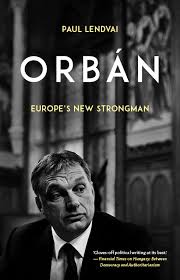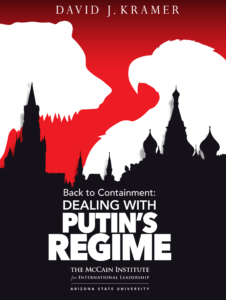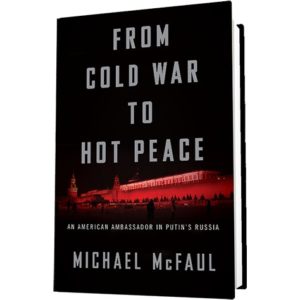 Does conservative support for such illiberal rulers as Poland’s Jaroslaw Kaczynski and Hungary’s Viktor Orbán indicate growing “demoskepticism” on the right? Some conservatives now dismiss policies that are infused with democratic values, notes Arch Puddington, distinguished scholar for Democracy Studies at Freedom House:
Does conservative support for such illiberal rulers as Poland’s Jaroslaw Kaczynski and Hungary’s Viktor Orbán indicate growing “demoskepticism” on the right? Some conservatives now dismiss policies that are infused with democratic values, notes Arch Puddington, distinguished scholar for Democracy Studies at Freedom House:
Such defenders of Orbán and Kaczyński as John Fonte and James P. Pinkerton argue, among other things, that they are merely asking questions about the effectiveness of liberal democracy in Europe, bucking a suffocating political correctness that emanates from Brussels, standing up for national sovereignty, and carrying out the will of ordinary people whose political needs were ignored by the previous center-left governments.
“But this is clearly not all that they are doing,” he writes for The Weekly Standard.
 “In 2010, Orbán declared that his ultimate goal was the replacement of the multiparty system with a de facto one-party regime where elections are conducted but power is concentrated in Fidesz’s hands through control of the administrative, legal, information, and economic spheres,” Puddington adds. “Eight years later, that ambitious project has effectively been achieved.”
“In 2010, Orbán declared that his ultimate goal was the replacement of the multiparty system with a de facto one-party regime where elections are conducted but power is concentrated in Fidesz’s hands through control of the administrative, legal, information, and economic spheres,” Puddington adds. “Eight years later, that ambitious project has effectively been achieved.”
In any case, the American right is mistaken when it idealizes Putin as a defender of “conservative values.” Whatever values Putin has are entirely situational — he’ll do whatever it takes to boost Russia’s power and his own (because the two are intertwined), Christian Caryl writes for The Washington Post.
 American evangelicals who come to Russia seeking allies in the fight against unbelief have proven equally gullible, he adds:
American evangelicals who come to Russia seeking allies in the fight against unbelief have proven equally gullible, he adds:
Their official interlocutor, the Russian Orthodox Church, had a long history of collaboration with the Soviet regime, one that extends into the present. The church is less a religious community than an arm of the state, which repays that loyalty by making life hard for potential rivals. Putin would never allow evangelical Protestants or Catholics to compete in a free marketplace of religious ideas.
It is one of Putin’s greatest triumphs that his narrative of grievance is widely accepted today in the American academy and by large segments of both political parties, notes Brookings analyst Robert Kagan. As Michael McFaul [in his new book] explains, however, it is mostly a myth, designed by Putin to justify his increasingly autocratic and personalistic rule to his own people, he writes for The Post:
 American and European actions after the Cold War did not prevent cooperation with Russia during the 1990s, after 9/11 or during the first two years of the Obama administration. The United States and Europe provided billions of dollars in aid to Russia and sought to help integrate Russia into the world economy. The United States created post-Cold War security and economic arrangements such as the NATO-Russia Council, the Group of Eight and the expanded Organization for Security and Co-operation in Europe to strengthen ties with Moscow and give it a greater say in global councils.
American and European actions after the Cold War did not prevent cooperation with Russia during the 1990s, after 9/11 or during the first two years of the Obama administration. The United States and Europe provided billions of dollars in aid to Russia and sought to help integrate Russia into the world economy. The United States created post-Cold War security and economic arrangements such as the NATO-Russia Council, the Group of Eight and the expanded Organization for Security and Co-operation in Europe to strengthen ties with Moscow and give it a greater say in global councils.
Putin’s conservative rhetoric is largely opportunistic and provides clear evidence of the prolonged crisis facing the regime, argues Ilya Budraitskis, a Moscow-based historian and political writer. The turn to political conservatism coincided with the onset of economic stagnation, he writes for Open Democracy:
The government responded to the structural economic crisis, exacerbated by a decline in oil prices and western sanctions, by slashing social spending. The government’s anti-crisis economic policy largely aped the austerity measures enacted in the European Union and were even tougher. The conservative discourse, which had virtually criminalized all grassroots protests as unpatriotic and playing into the hands of foreign foes, legitimized the Russian variation of austerity.







